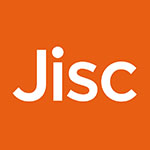The Indo Pacific in the post Brexit UK International Strategy
An Approach from the International Political Economy (IPE)
Abstract
After leaving the European Union, the United Kingdom has redesigned its international insertion strategy considering the changes that have occurred in the post-cold war international liberal order in the last twenty years. The reorientation towards the Indo Pacific through initiatives such as the application for membership of the Association of Southeast Asian Nations (ASEAN) and the Trans-Pacific Economic Cooperation Agreement (CPTPP) although they can be considered as economic and commercial initiatives, do not operate independently of the political objectives.
This essay analyzes the place of the Indo Pacific region in the United Kingdom’s international insertion strategy towards Post Brexit through an approach to the theoretical postulates of the school of International Political Economy.
Downloads
References
Actis, E., Lorenzini, M. y Zelicovich, J. (2017). La vinculación entre modelo de desarrollo y estrategia de inserción en la Argentina democrática (1983-2011). Estudia Policae; 41(6), 105-135. https://ri.conicet.gov.ar/handle/11336/78551.
Bolinaga, L. y Slipak, D. (2015). El consenso de Beijing y la reprimarización productiva de América Latina: el caso argentino. Revista Problemas del Desarrollo, 183(46), 33-58. https://ri.conicet.gov.ar/handle/11336/42255.
CEPAL. (2013). Estudio Económico de América Latina y el Caribe 2013: tres décadas de crecimiento económico desigual e inestable. Santiago de Chile.
Chagas-Bastos, F. H. (2018). La invención de la Inserción Internacional: Fundaciones intelectuales y evolución histórica del concepto. Análisis Político, 31(94), 10-30. http://www.scielo.org.co/pdf/anpol/v31n94/0121-4705-anpol-31-94-00010.pdf.
Cohen, R. C. (2017). ¿Necesidad de un nuevo orden internacional? Revista Foreign Affairs Latinoamerica. https://revistafal.com/necesidad-de-un-nuevo-orden-internacional/.
Del Valle Guerrero, A. L. (2018). La reconfiguración del orden geopolítico mundial en la era Trump, desde una perspectiva sudamericana. Jornadas Platenses de Geografía y XX Jornadas de Investigación y de Enseñanza en Geografía de la Universidad Nacional de la Plata. Universidad Nacional de Sur, Buenos Aires.
Delage, F. y Carrertero, F. (2017). China: Diplomacia económica, consecuencias geopolíticas. Geo economías del Siglo XXI, 55-91.
Gilpin, R. (1990). La economía política de las relaciones internacionales. Grupo Editor Latinoamericano.
Gilpin, R. (2001). Global Political Economy. Understanding the International Economic Order. Princeton University Press.
Gilpin, R. (2009). War and Change in World Politics. Cambridge University Press.
Godoy, P. (2019). La economía Política Internacional. Revista Integración y Cooperación Internacional, (29), 5-13. https://doi.org/10.35305/revistamici.v0i29.12.
Gott, R. (2015). El imperio británico: Resistencia, represión y rebeliones. El otro lado de la historia (1a ed., 2a reimp.). Capital Intelectual.
GOV.UK. (2021). Global Britain in a Competitive Age. The Integrated Review of Security, Development and Foreign Policy. https://www.gov.uk/government/publications/global-britain-in-a-competitive-age-the-integrated-review-of-security-defence-development-and-foreign-policy/global-britain-in-a-competitive-age-the-integrated-review-of-security-defence-development-and-foreign-policy.
Hayton, B. (2020). China and Brexit Drive the UK’s ‘Tilt’ to Indo-Pacific. Chatham House. https://www.chathamhouse.org/2020/11/china-and-brexit-drive-uks-tilt-indo-pacific?gclid=Cj0KCQjwgtWDBhDZARIsADEKwgNtgYEJCR8gDom63phJ6w2xIhDY_YmUUTpgtXf4Uq3O0oa7h_vGe8MaArfTEALw_wcB.
Keng Yong, O. (2018). Asia Values: A Free and Open Indo-Pacific. Halifax Papers. Halifax International Security Forum. Canadá. https://bit.ly/2Y2G0zG.
Neumann, R. (2004). Globalización, rol del Estado y relaciones internacionales en el realismo de Robert Gilpin. Estudios Internacionales, 37(146), 5-39. http://www.jstor.org/stable/41391790.
Organización Mundial del Comercio. (2020). Informe sobre el Comercio Mundial 2020: Políticas gubernamentales para promover la innovación en la era digital. https://doi.org/10.30875/32363538-es.
Palacios, J. J. (2011). El orden mundial a inicios del siglo XXI: orígenes, caracterización y perspectivas futuras. Espiral, Estudios sobre Estado y Sociedad, XVIII(52), 225-265.
Paskal, C. (23 de marzo de 2021). Indo Pacific, perceptions and Partnerships. The view from seven countries. Chatam House. https://www.chathamhouse.org/2021/03/indo-pacific-strategies-perceptions-and-partnerships.
Serbin, A. (2016). América Latina y el Caribe frente a los desafíos de un nuevo entorno global: el impacto de la nueva bipolaridad China-Estados Unidos y los mega-acuerdos. En Pastrana Buelvas, E. y Jost, S. (Eds.), Incidencias regionales y globales de la Alianza del Pacífico (pp. 25-69). Fundación Konrad Adenauer/GEDISA/Editorial Javeriana.
Serbin, A. (2021). El Indo-Pacífico y América Latina en el marco de la disputa geoestratégica entre Estados Unidos y China. Fundación Carolina. Documento de Trabajo nº 45. https://www.fundacioncarolina.es/el-indo-pacifico-y-america-latina-en-el-marco-de-la-disputa-geoestrategica-entre-estados-unidos-y-china/.
Sevares, J. (2018). China en la globalización financiera. Ola Financiera, 11(30), 68-97. http://www.revistas.unam.mx/index.php/ROF/article/view/65517/57479.
Strange, S. (1970). International Economics and International Relations: A Case of Mutual Neglect. International Affairs, 46(2), 304-315.
Strange, S. (1987). The Persistent myth of lost hegemony. International Organization, 41(4), 551-574.
Strange, S. (1998). El Estado Hueco. En Nasi, C. (Comp.), Posmodernismo y Relaciones Internacionales (pp. 147-168). Pontificia Universidad Javeriana.
Strange, S. (1999). The Westfailure system. Review of International Studies, 25(3), 345-354.
Strange, S. (2004). States and Markets. Continuum.
Troubridge, S. (2018). The Strategic Case for A London-Beijing Trade Axis. Horizons: Journal of International Relations and Sustainable Development, (10), 42-49. https://www.jstor.org/stable/48573475.
Turzi, M. (2017). Todo lo que necesitas saber sobre el (des)orden mundial (1a ed.). Paidós.
Tussie, D. (2015). Relaciones Internacionales y Economía Política Internacional: Notas para el debate. Relaciones Internacionales, 24(48), 155-175.
Wallerstein, I. (23 de septiembre de 2007). América Latina puede contar más en la geopolítica mundial. Clarín, 7-8.
Copyright (c) 2022 Federico Luis Vaccarezza

This work is licensed under a Creative Commons Attribution-NonCommercial-NoDerivatives 4.0 International License.
This license allows the copy, distribution, exhibition and representation of the work provided authorship is acknowledged and the work is properly quoted. Commercial use of the original work or the generation of derived works are not allowed.
The authors hereby guarantee the right to the first publication of the work to the Revista Política Austral.




































